Letting Go of Kids, and Characters
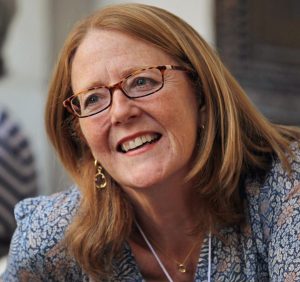 Mothers and fathers of young children can think they’re dealing with the greatest parenting challenges they’ll ever face. I remember feeling that way. For close to a decade I wandered through my days in a fog because I’d been up at night nursing or tending a sick child. But even the exhaustion and numbness that comes from caring for young children can be emotionally less fraught than what parents feel as our kids enter adulthood.
Mothers and fathers of young children can think they’re dealing with the greatest parenting challenges they’ll ever face. I remember feeling that way. For close to a decade I wandered through my days in a fog because I’d been up at night nursing or tending a sick child. But even the exhaustion and numbness that comes from caring for young children can be emotionally less fraught than what parents feel as our kids enter adulthood.
Instead of sweaty, crying babies pressed against our chests at 3 a.m., parents of young adults are wide-awake with worry, and most noticeably, alone. During this stage, we have to change every bit as much as our children do. It takes every scrap of self-confidence, faith, and optimism to stop steering their lives—to let them be who they’re going to be.
Strangely enough, a similar process of letting go must happen when creating characters in fictional stories. In both life and in writing, our babies grow up and leave us. They become themselves, often in spite of us.
I’m frequently surprised by the motivations that propel my characters forward. But I’ve learned that even if I didn’t anticipate an action, it needs to be respected and explored. In my story White Dog, the elderly artist raises a rifle and before I could foresee what was going to happen next, he aimed directly at a target that would ruin him. As the gun goes off, I sensed he’s making a colossal mistake, one that will forever define him. I would have liked to change his course, and obviously I could, but his life story (some of which is known, but most of which isn’t, even to me) has led him to this. The guy is who he is, god help him, especially since that god, ostensibly, is me.
Many parents feel that way about their children when as young adults they become involved in relationships we sense aren’t right; they drop out of school, even though we think they shouldn’t; or they head off for the other coast, imagining things will be more exciting there, when we’re sure they won’t. At least, we think so. Because the truth is, we don’t know how things will turn out any better than they do. We don’t know for certain which is the path to happiness and fulfillment any better than I, as a writer, know all the implications of that cocked rifle. Will it make my character more loved, though flawed? Will it help him to find peace, though he’s created havoc? Will it set him free? I can sense the consequences of each choice but the nuances remain complex and mysterious and ultimately up to the reader to decide.
In other words, the old saw about fiction writers playing god with their characters only makes sense if we believe that god has a hazy idea of things. I can set my characters on a path and push them forward, but I rely on others to grasp the full meaning of their fates. Maybe some writers are more systematic. Writers post on Facebook the methods they use to chart character motivations and outcomes, employing index cards and spreadsheets. But for me, the process of understanding my characters is much the same as it is with my children: I get them through and through, but after a certain point, they mystify me.
As parents we can’t help trying to nudge our young adult children toward happiness. We follow their paths closely, elbowing them gently to the right or the left. In the same way, I set up my characters in situations where they can show themselves. I encourage them to take road trips to reveal their bravery. I send them spinning on the dance floor, shimmying ever closer toward love. And, because this is fiction, I even have them crash and burn, better to rise from the ashes. When a bruising accident takes place on the asphalt, my young skateboarder hobbles forward, straight into adulthood.
On a sunny, spring afternoon not long ago, the boy skateboarder in one of my stories and my real life child crossed paths and left me behind. I had asked my twenty-one year old son to read a story I wrote years before, back when he was a pre-teen and learning to skateboard. He had worked day after day in the driveway, trying to get his board to rise up off the ground. His young, short legs didn’t have the strength to make it happen, yet he stayed out there in the cold of winter and heat of summer. I think it took him two years to do his first kick flip and I often tried to save him from that frustration, but he wasn’t to be thrown off course.
At a certain point in those years, I realized that he was doing what I did each time I sat down at my desk: he was trying to perfect his art—even though he would have groaned at me for framing it that way. Admiring of his efforts, I wrote a story about a kid who is rude to his father, but who is as dedicated as any serious artist. The boy in my story isn’t my son, but he’s inspired by him.
So when I asked my twenty-one year old if he’d read that story and offer corrections to my skateboarding terms, I knew I was asking him to make the adult leap to understanding the complex relationship between fiction and life. As he sat with his head bent low over the manuscript, I couldn’t help noticing how he had grown into a handsome, competent, and good-hearted young man. He tossed off helpful edits and improved the boy’s dialogue by deleting outmoded slang.
But what touched me most was when he shook his head and snickered quietly, saying, “Oh, Mom, this is definitely me.” I laughed a little, too, embarrassed by the way I had stolen from him to make a new, fictional life. But before I had a chance to reiterate that the boy in the story really wasn’t him—my son had never been as obnoxious as my character—my now adult boy interrupted my thoughts by saying, “I know, I know, I get it. The kid is his own person.”
I know, I know, I get it. Maybe that’s as much as we can hope for from our readers—a confirmation that a story makes sense on a visceral level and exists without explanation from the writer. The characters and the choices they make have a certain, inalienable logic. The path they follow seems right. They are who they are.
And yet, it still remains hazy how to achieve that understanding, in much the same way that it’s never entirely clear how a parent can go from thinking we know what’s best for our children to understanding that they know what’s best for themselves. It’s a process of letting go, trusting them and the story that is now theirs to tell, because it’s their lives after all, not ours.
VIRGINIA PYE is the author of two award-winning novels, Dreams of the Red Phoenix and River of Dust, and the forthcoming short story collection, Shelf Life of Happiness. Her stories, essays, and interviews have appeared in The North American Review, The Baltimore Review, Literary Hub, The New York Times, The Rumpus, Huffington Post and elsewhere. She lived in Richmond, Virginia for many years and now lives in Cambridge, Massachusetts. Find her online at www.virginiapye.com, https://www.facebook.com/virginiachaneypye, or https://twitter.com/virginiapye.
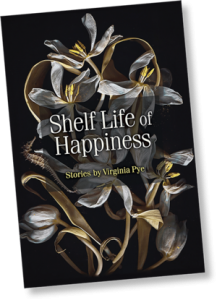 In Virginia Pye’s memorable short story collection, SHELF LIFE OF HAPPINESS (Press 53, publication date October 23rd), characters search for connection and contentment. Some find it while others watch ruefully as it slips beyond their grasp.
In Virginia Pye’s memorable short story collection, SHELF LIFE OF HAPPINESS (Press 53, publication date October 23rd), characters search for connection and contentment. Some find it while others watch ruefully as it slips beyond their grasp.
In “Best Man,” a young man visits his dying best friend one last time, only to discover an unexpected longing for the friend’s wife. In “An Awesome Gap,” a teenager can’t connect with his straight-laced father over the single passion in his life, professional skateboarding, but decides to make a last dramatic attempt. An Easter egg hunt turns into a gentle lesson on loss in “Easter Morning,” and in “Redbone,” a middle-aged painter who has finally received recognition reflects on his life while aiming for shore after swimming too far out.
Pye’s stories catch ordinary people just as they experience extraordinary milestones or revelations, and in this refreshing, confident collection, no story is the same. She writes about men and women, young and old, with settings as diverse as a suburban back yard, the Roman Forum and New York City. The common denominator in all her stories, as in her novels, however, is that Pye captures the truth in people’s hearts, making her stories powerfully resonant.
Category: How To and Tips




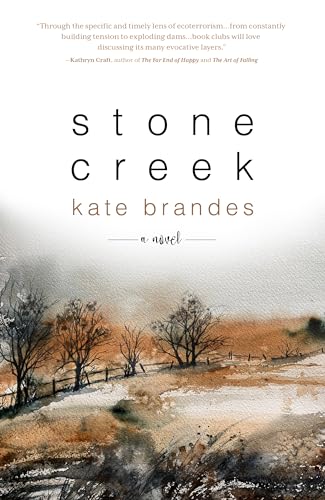
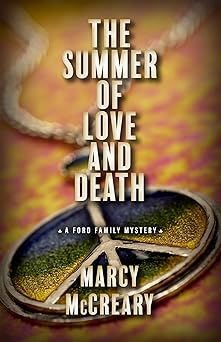
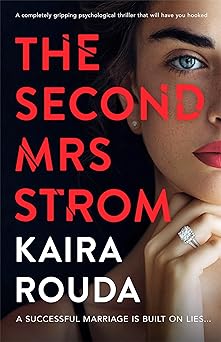



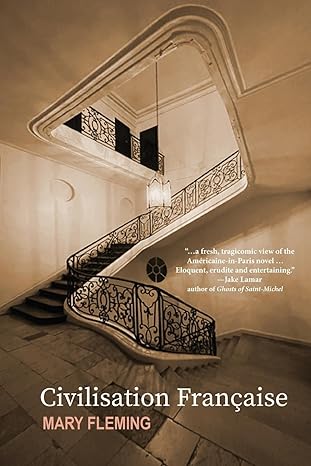
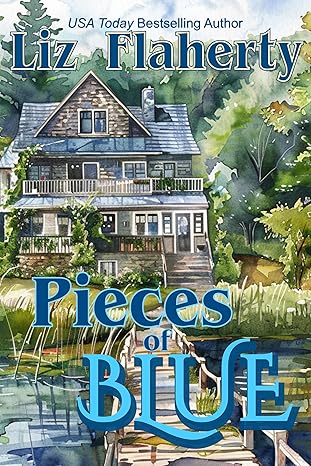
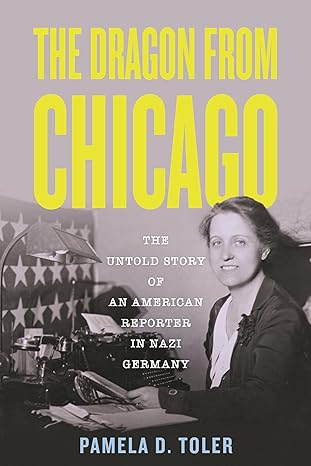
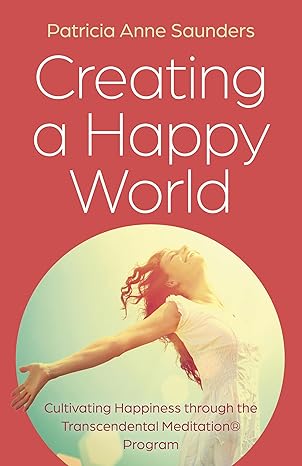
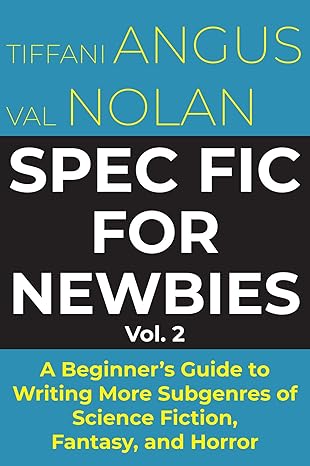

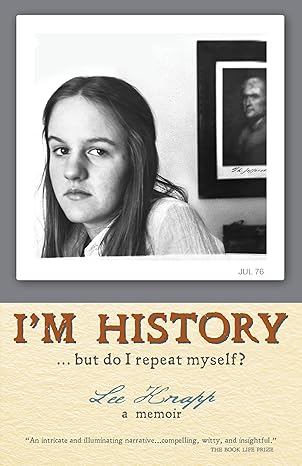
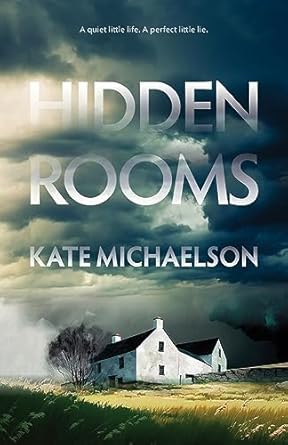
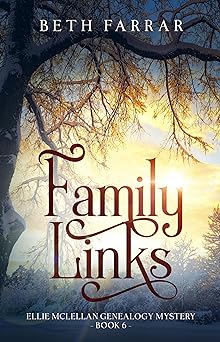
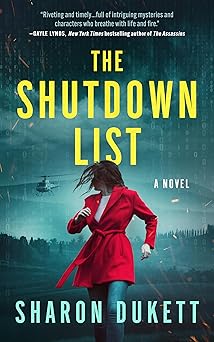
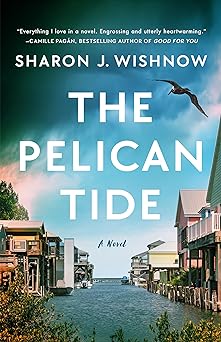

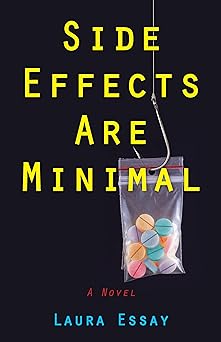
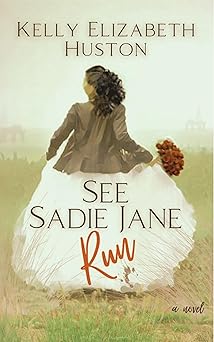
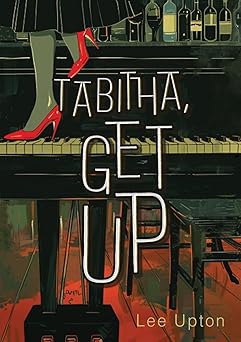

Thanks so much for having me on your blog. I really appreciate you sharing my work and hope that your readers find this essay and my collection enjoyable!
With appreciation,
Virginia